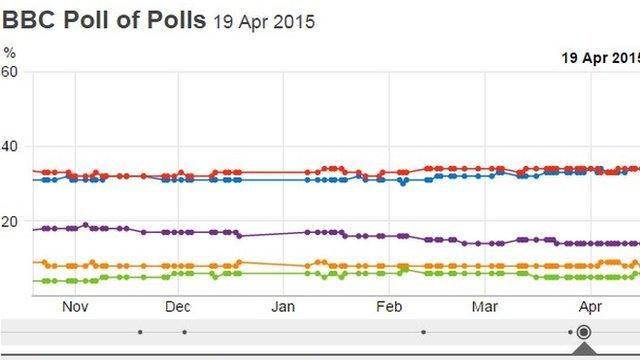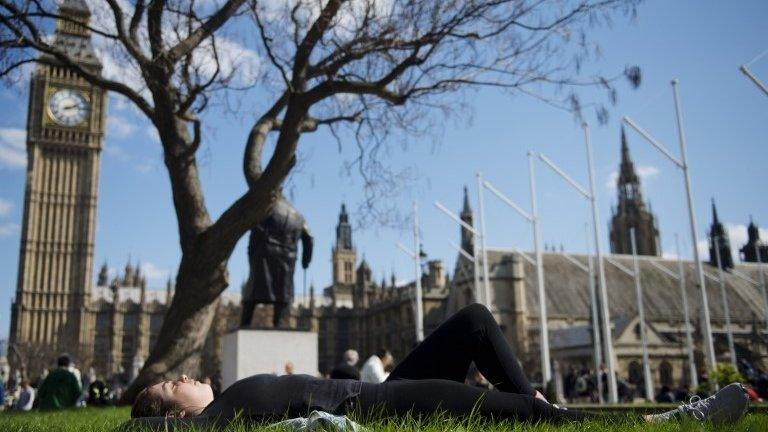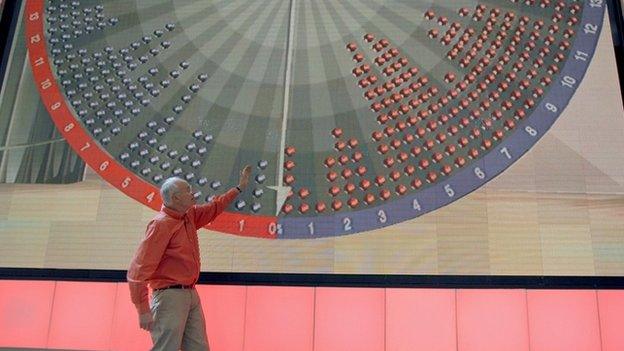Pollwatch: Why Election 2015 is most unpredictable ever
- Published
The home stretch at last but one littered with unknowns. Is there a late rally to the Conservatives? Possibly, but like so much else in this campaign, it seems far from clear. Will Labour out-perform the national polls by performing more strongly in key marginal seats? There is some supporting evidence for this but it is hardly overwhelming.
How to reconcile the Lib Dems holding many of their seats when support for them in the national polls has collapsed? Will UKIP's support dissolve on 7 May and produce a hidden army that delivers victory to the Conservatives? Will the polls overstate Labour's support this time, unlike 2010 when they understated it? Will Scotland return any other than SNP MPs?
We would not be in our present confusion about the outcome of the general election if the three main Westminster parties were popular. All our problems in trying to predict the outcome of 7 May stem from the fact that they are manifestly unpopular. This general election is the mother of all ugly baby contests between the Conservatives, Labour and the Lib Dems.
And yet, for all the public antipathy towards mainstream Westminster parties, no other parties under our current first past the post system, are going to form a government, minority or otherwise. So, back to the grindstone.
I have monitored some 76 campaign polls so far - 30 of them from YouGov and ten from Populus. It would be convenient to argue that this was a battle of methodologies, with telephone versus internet polls explaining the differences in party support, but it doesn't quite work like that: the most recent ComRes telephone poll has Conservative and Labour on 33% each and a YouGov internet poll has Conservatives 33% and Labour 34%.
Looking at the last 20 published polls of the campaign, they suggest to me that any recent Conservative increase in support has stalled in the past few days; Labour slogs on at around 34%; the Lib Dems at about 9% and the Greens around 5%. Once again UKIP is the most intriguing part of the 2015 electoral equation: the fortunes of other parties rest so heavily on their performance. My reading of the latest polls suggests to me that their support is holding up rather than disintegrating.
As a child I remember a seaside booth where a Madame Osiris offered to reveal all the secrets of the universe for just £5. I must confess that I am not in her league.
I have never been more uncertain about the outcome of a general election in my life. Before the explosion of the SNP in Scotland I would have gambled that Labour were most likely to emerge as the largest party in a hung parliament.
Scotland wrecks that and makes the possibility of the Conservatives ending up with most seats very plausible. What makes this a really difficult election to call is that the small number of seats that will determine who is ahead in an election that nobody wins could well be decided by organisational slugfests in a handful of parliamentary seats.
- Published26 April 2015

- Published19 April 2015

- Published28 March 2015
